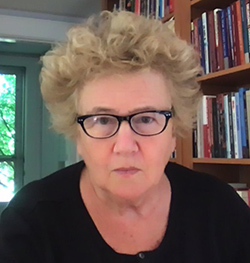Install the app
Install this application on your home screen for quick and easy access when you’re on the go.
Just tap then “Add to Home Screen”
Install this application on your home screen for quick and easy access when you’re on the go.
Just tap then “Add to Home Screen”
Install this application on your home screen for quick and easy access when you’re on the go.
Just tap then “Add to Home Screen”
In this instalment of our House Series, Pippa Norris discusses concerns that academic freedom is threatened by growing demands for intellectual conformity and attempted censorship. She seeks to understand the nature and scope of contemporary threats to academic freedom of expression around the world, and the role of self-censorship in particular.
Free speech is the bedrock of democracy, creative thinking, scientific innovation, civic activism, and scholarly inquiry – and it includes the right to hold views that run counter to majority opinion.
Today, however, in many liberal democracies, there is concern that academic freedom is under threat from commercial, governmental, and social forces. In such a climate of intellectual conformity, universities’ core mission is indeed impoverished.
Amid the so-called ‘woke wars’, either the liberal progressive left, or the socially conservative right – or both – stand accused of suppressing the voices of their perceived enemies. This ‘cancel culture’ aims to silence any speech deemed derogatory, hostile, factually incorrect, or morally offensive.
But just how far do scholars censor their language in the classroom, in their research, and on social media, to conceal their true beliefs?
Pippa Norris analysed survey data from the 2023 ECPR-IPSA World of Political Science survey, which recorded the views of almost 2,000 political scientists in around 100 countries. These valuable insights deepen our understanding of the spiral-of-silence process of self-censorship in higher education. They hold important lessons for policies that protect viewpoint diversity in the academy.
Pippa will discuss the implications of the WPS survey findings, and consider the next steps in the research agenda.
All instalments in our House Series are FREE to attend and open to scholars from ECPR member and non-member institutions.
Pippa completed a study seeking to understand the nature and scope of contemporary threats to academic freedom of expression around the world, especially the role of self-censorship in this process.
She unpacks the notion of a ‘cancel culture’ in academia, understood as a chilly climate silencing speech deemed derogatory, hostile, factually incorrect, or morally offensive. Her research explores processes of self-censorship in which scholars are unwilling to express their authentic views in public.
Mechanisms that may drive these processes include heterodox status (cultural minorities out of step with majority views); institutions (constitutional principles, legal frameworks and administrative regulations used by educational authorities to govern academic speech); culture (attitudes, values, and social norms towards free speech); and academic status (inequalities in academic power, security, gender, and age).Read more

Pippa Norris is a comparative political scientist who has taught at Harvard for three decades. She holds a BA in Politics & Philosophy from Warwick University, and Master's and Doctoral degrees in politics from the London School of Economics. Her research compares public opinion and elections, political institutions and cultures, gender politics, and political communications in many countries worldwide.
Pippa established the Electoral Integrity Project in 2012 and served as Director of Democratic Governance at the United Nations Development Program.
She has served as Vice President of the American Political Science Association (APSA), and on the executive committee of the International Political Science Association (IPSA), and the Political Science Association of the UK (PSA). Within APSA, she has served as President of the 'Women and Politics Research', 'Political Communications', 'Elections, Public Opinion and Voting Behavior' Sections.
In 2011, Pippa and Ronald Inglehart were awarded the Johan Skytte Prize in Political Science for 'contributing innovative ideas about the relevance and roots of political culture in a global context, transcending previous mainstream approaches of research'.Find out more
Loading news
Loading key dates